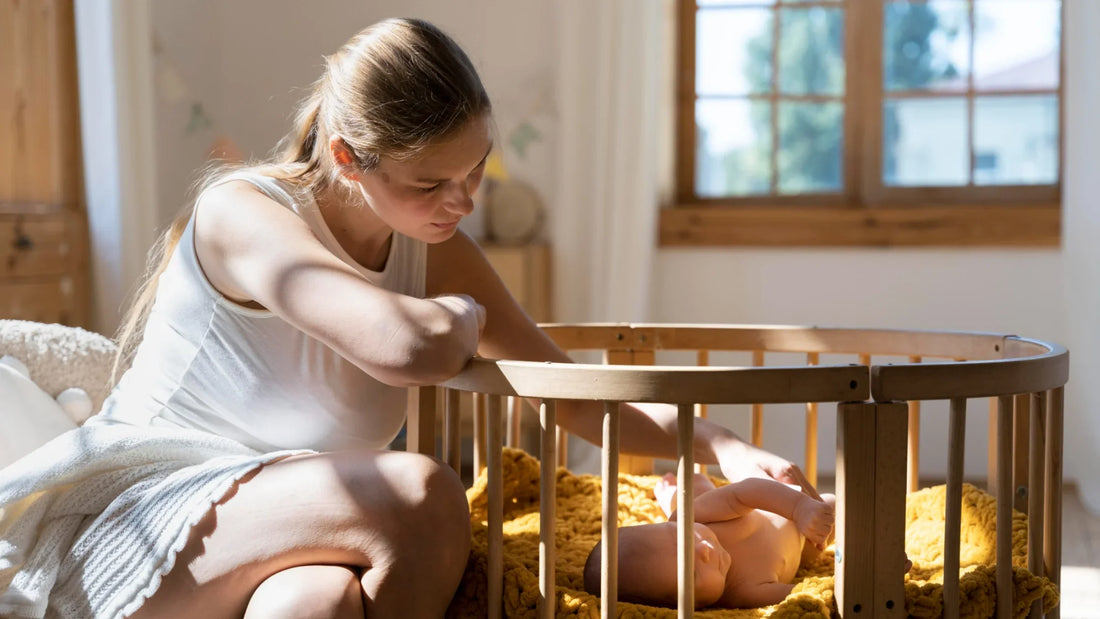Co-Sleeping: To Sleep or Not to Sleep with Your Baby?
“Don't sleep with your baby because you'll spoil him later”, “if you sleep with him next to you he'll wake up less often”. How many times have mothers and fathers heard these kinds of things about co-sleeping with their little one, but what is the right thing to do? Is it better to sleep with your own child or not?
I'll answer you in this article!
What is co-sleeping?
Co-sleeping means sleeping next to your baby and can be of different types:
- Separate co-sleeping : in this modality, the baby has his or her own bed or crib in the same room as the parents, but the beds are separate. Therefore, parents can intervene as soon as the baby wakes up or cries without being in close proximity to the baby.
- Direct Co-sleeping : In this case, the baby actually shares the same bed with one or both parents. Bed-sharing can allow for constant physical contact during sleep, which promotes breastfeeding and emotional bonding, but it comes with several safety risks.
- Co-sleeping by side : when next-to-me cribs or cots attached to the parents' bed are used, this type of co-sleeping is being practiced. It has the same advantages as direct co-sleeping, but allows the baby to sleep in a separate and therefore safer space.
- Temporary co-sleeping : it is temporary because it is done only at certain times (breastfeeding, falling asleep or to calm the baby) and then the baby is taken to his or her own bed. It is widely used when trying to get the baby used to sleeping in his or her own bed.
Sleeping with your newborn: advantages
Although in the East co-sleeping is a completely normal practice, here in the West it is still often considered wrong. This is because we try to make the little one as independent as possible in the shortest time, following the fast and pressing rhythms of daily life.
Co-sleeping does not mean spoiling the child , but satisfying his physiological need for closeness to his mother. In fact, in nature, babies are totally dependent on their mother for survival instinct. Puppies have no way to protect themselves, they do not know everything that surrounds them; therefore, they seek the support and closeness of their parents to feel safe even and especially in sleep.
Here are the main benefits , also recognized by science:

Breastfeeding Promotion:
Stabilization of cardiac and respiratory rhythms:
Strengthening the parent-child bond:
Reducing Anxiety in Children:
Autonomy
SIDS Risk Reduction
Are there risks in co-sleeping?
Co-sleeping in the form of bad sharing has the following potential risks :
- Suffocation : This can happen either if the baby is covered by duvets and sheets, or if the parent accidentally places themselves on top of the baby. Unfortunately, this is not such a rare occurrence and becomes much more likely if the parents are under the influence of alcohol or drugs.
- Falls from bed : This risk can be eliminated by ensuring suitable bed rails are used;
- SIDS : Bed-sharing increases the risk of SIDS by 5 times if not done safely;
- Sleep disturbance : when you become a mother you also acquire a greater sensitivity to sounds and movements especially during sleep. This can lead the mother to wake up much more often every time the baby makes a noise or moves;
- Lack of privacy for parents : the birth of a baby brings new beautiful emotions for parents, but also the need to find new balances. The relationship of the couple changes and privacy is not always so easy to find especially when practicing co-sleeping.


